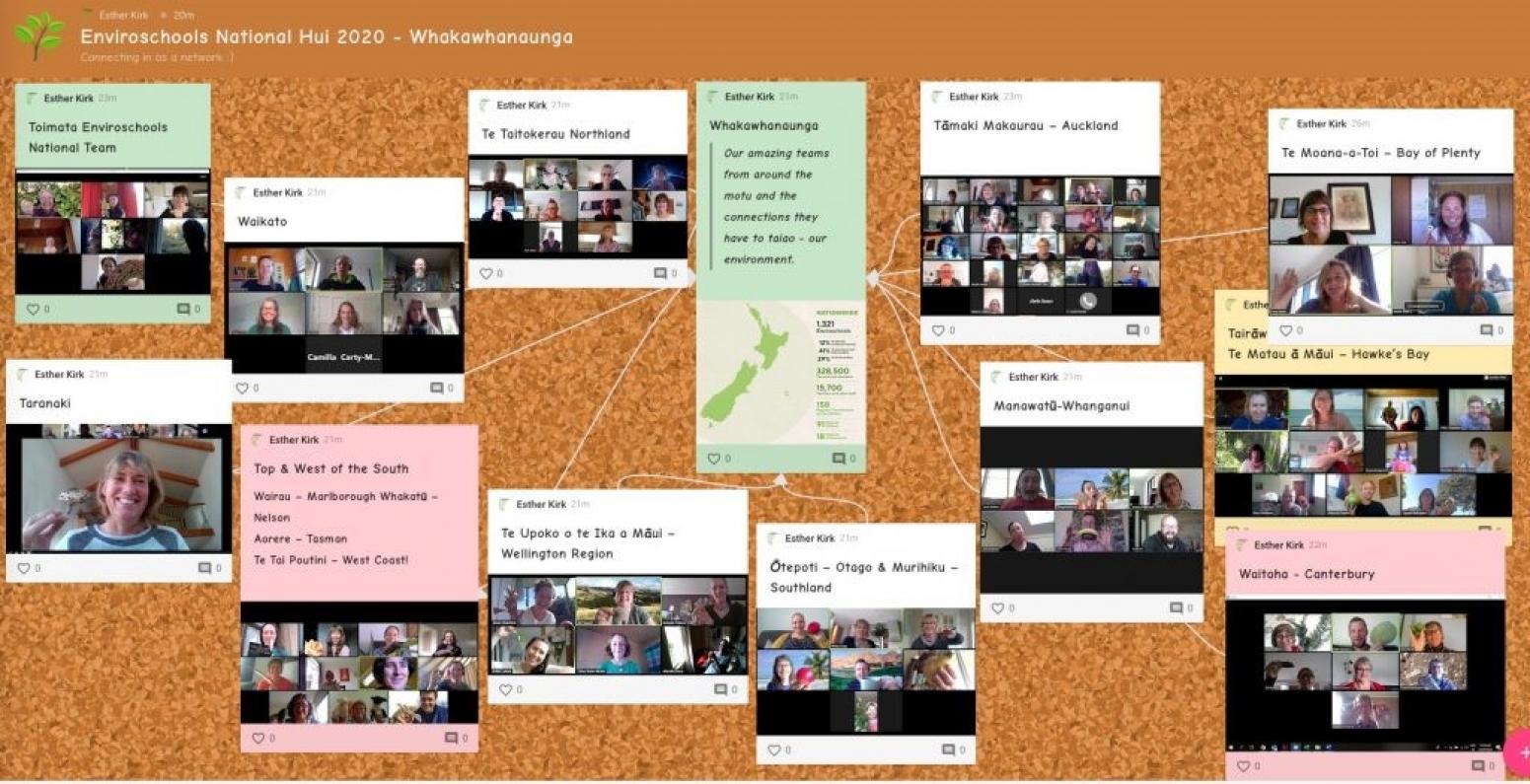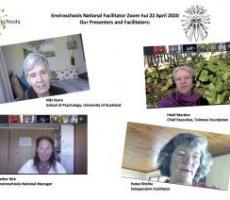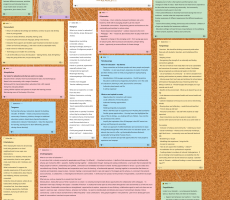

Our 2020 zoom hui was an opportunity to connect to the kaupapa, to each other and taiao. Our virtual hui still affirmed the mahi /work that we were all carrying out and allowed opportunities for listening, moving about, small group discussion and deliberation. The day was ably facilitated by Esther Kirk and Helen Ritchie.
After an opening mihi and setting some tikanga for our time together, regional teams gathered in breakout rooms to brainstorm how they are all connected to each other and te taiao then came back to the main hui for our whakawhanaungatanga.

Heidi Mardon, C.E. of Toimata Foundation, started her presentation by saying that our kaupapa is more relevant than ever given the current concerns for global health and well-being. She outlined some of the approaches that the wider National team were taking over the next few months; taking time to settle into a different way of working and living. She stressed the importance of living our kaupapa, observing our surrounding, spending quality time with our bubble whānau, learning together and having fun modelling our resource activities (She did mention time for filing too…) She stressed this pause was time for reflection in order that we be conscious about where and how we are moving to next as individuals and an organisation and decide what we want to co-create.
Heidi challenged us to consider: If this is now an opportunity to reset on a global scale and create a healthy, peaceful more sustainable world…
1) What is our vision of education?
2) What are you, and we, inspired to co-create from this time?
Dr Niki Harre, guest speaker, provided food for thought with her presentation around systems language and her experience researching enablers and influences of Environmental Education for Sustainability in a secondary setting. She described a sustainable schools as being made up of a complex system of interrelated components (people, activities, purpose & physical infrastructure) in which impulses toward sustainability are nurtured and thus create positive feedback loops toward further change and one in which a sustainability culture is in the air and widely acknowledged by members who increasingly adopt sustainability values and identities. Sustainability impulses pop up regularly.
Dr Harre also explored the concept of creating a society in which people feel safe. She asked us to look within the word ‘kind’ to ‘kin’ and think of kinfolk and kindness and enacting values of kin – kinship – acting for families, for whānau. This could mean ‘holding what you need to be as a fully functioning human being – to be safe, to be who you are meant to be, and to be part of a community moving together. The economics of people – a coherent narrative, a narrative we belong to, a narrative that is inclusive and is foundered on aroha. There is flow on from the current place where education is a space for healing and regeneration’.
At the end of the day together and after an energising Atua connection activity, there was a chance to individually reflect on the hui by creating a mind-map of what inspired us. There was also time to think about and record some practical actions we can all personally take.
Banner Photo: Padlet shot of regional teams.





